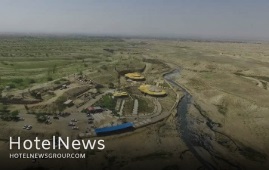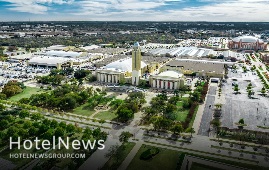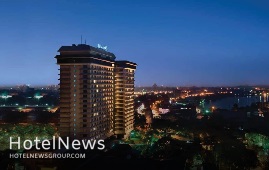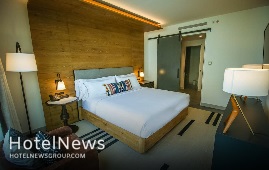
The recovery in the leisure sector is imminent, and we argue that small groups aren’t far behind given that ‘revenge travel’ also implies a strong yearning to reconnect and congregate. A return to healthy numbers won’t be evenly spread across all hotels, though. It will favor those properties and those organizations that are already prepared for a diverse range of ramp-up scenarios, with others leaving revenue on the table by not having plans in place prior to this next phase. While hotels could hardly have predicted or prevented the advent of COVID-19, what we’ve witnessed in the latter half of 2020 is an industry that’s largely reactive to macroeconomic forces. Many operators have hinged their hopes on a near-complete reversal to 2019 demand levels and guest expectations without any earnest consideration for structural innovation and becoming more adaptable to the increased volatility in the market. Luckily, there are a few shining stars that highlight where hospitality needs to be for the decade ahead, and we’re excited to present one such case herein. Newport Hospitality Group (NHG) is a management company that’s been operating for 30 years and now has over 50 managed properties in its portfolio spread all along the Eastern Seaboard. Most fascinating for our current conversation is that the organization has some inherent ‘antifragility’ (to borrow a term from the brilliant statistician and option trader Nassim Taleb) in that it thrives relative to its comp set not only during good times but also during periods of economic turmoil. Upon reviewing their annual RevPAR growth metrics, they’ve beaten their respective markets in every year since 2005. Emphasizing this is that during the calendar year of 2020 NHG dropped 7.9% less than the US RevPAR average and the company also added 10 properties to its portfolio. This echoes their relative CAGR for the recession of 2008-09 where they also substantially beat the market. Success Starts at the Senior Level In trying to decipher the secret to the longstanding NHG playbook, we had an extensive discussion with Wayne West III, NHG’s President. He explained that success during turbulent times hinges upon decisive attention at the senior level combined with a thorough comprehension of the roles and responsibilities for the onsite operator, the corporate office team and the owner. Finding the best alignment amongst these entities – which may or may not have different goals – is an initial step that is often overlooked. So much time is spent in planning meetings and getting approval for changes and new initiatives that operations can easily get bogged down through ‘decision by committee’. In particular, hospitality is more exposed to this problem than other industries given our highly vertical organizational structures and lack of monetary empowerment at the property level. These types of inertial situations can easily be exacerbated by conflicting visions and orders stemming from the three-headed, ‘Cerberus-like’ discord amongst the owners, brand and management company. The key is to find a balance of responsibilities. “In many ways, the hotel industry’s current situation is like a street race,” quipped West as he explained how immobility can compromise a hotel’s success. “You don’t start revving your engine when the light turns green. You rev in neutral so that you can fly out of the gates once the countdown hits zero. This resembles the state of many hotels as we gear up for a roaring Q3 and Q4. At NHG, we established a playbook for swiftly reacting to hard times even before the Great Recession to the point where it’s now baked into our culture. All our managed properties have a clear chain of command and are staffed up to handle a surge of both transient guests and group RFPs.” Indeed, one case where having alignment at the senior level is mission critical pertains to the reemergence of groups, starting with reunions, corporate retreats and wedding receptions later this fall in advance of larger MICE-type travel sometime in 2022. With those small group gatherings taking place in the autumn or winter, the planning starts in late spring or early summer, and hotels must have a sales team and group rate plan fully set up to win these contracts. To this end, one reason for NHG’s success versus its comp set in 2020 was because it retained its sales team throughout. This meant that they were fully ready to enter any negotiation with attractive offers and coronavirus-specific programs such as full-floor or section buyouts and operational staff pods to limit cross-exposure. Emphasizing Succession Planning To ingrain the first lesson above, far better than a lengthy deliberation over the best possible approach is to implement a reasonably satisfactory course then act quickly to adjust the plan as market conditions evolve. To enable this ability to pivot, onsite leaders must have a certain degree of autonomy and freedom to act within a proscribed framework. But how do you develop a culture of empowerment? One critical point that West highlighted to that end was succession planning and how many hotels aren’t prepared for a return to normalcy because they furloughed too many of their team members. This is especially evident for sales teams, whereby without key managers kept up to speed on a property’s event capabilities, each RFP cannot be addressed through a preestablished process. This results in teams constantly playing catch-up and reacting week-over-week to new inquiries rather than looking ahead to new initiatives that will advance the hotel’s revenue prospects. To ensure this type of problem never sets in, NHG prides itself on promoting from within and executive retention, with nearly half of their senior teams staying with the company for over a decade and nearly a quarter staying for over 20 years. A sharp focus on retention like this means that the onsite operators are totally in sync with ownership and the corporate office, intrinsically knowing how to implement the latter’s directives and hastily deploy resources to make those changes a reality. “A property is only as good as its GM,” remarked West to close out our talk, succinctly describing how, if the GM gives his or her managers a clear and actionable plan without backtracking or indecisiveness, then success is all but guaranteed. In this sense, nurturing great teams, especially during hard times like the current pandemic, is vital for decreasing conflict and aligning operations prior to periods of increased demand. Particularly at the senior level, the time to make your organization nimble and imbue a clear command structure for rapid action was yesterday. But, with hindsight being what it is, a close second place would be today. It’s never too late to chart a course for a profitable decade ahead, and our hope is that you can learn from this brief examination of NHG to see how you can create a culture of success.
Create: May 8, 2021 Edit: May 8, 2021 Hotel Management
At a time when many of the world’s events continue to be plagued by COVID-19, making plans even a week in advance may seem difficult, much less 10 years into the future. Nearly overnight, the dialogue shifted from “where to for lunch?” to “can you hear me?”. And as hotels emptied out and travel restrictions drag on, many may wonder, where lies the future of hotels? To answer this question, it is first important to recognize that the hotel sector does not exist as an individual silo, but one which forms part of a much wider network: the ecosystem of how we live and work. The cities in which we live today are a reflection of how humans have shaped our environments to fit our social and economic needs. For generations, urban agglomeration had been the standard of cities, and central business districts (CBDs) thrived as we commuted between living in one area and working in another. Accordingly, hotels have typically focused on serving transient international or regional visitors, primarily playing one of two roles: a place to sleep and meet during our business travels, or a place of respite for our leisure getaways. Today, rising interest in (semi-) permanent remote working and a greater desire to live outside of high-density urban areas may signal yet another impending change in the way we live and work. Could deurbanization or decentralization continue on this trajectory – and what would that mean for hotels? In a Cushman & Wakefield webinar, Richard Pickering, Chief Strategy Officer, EMEA and Borivoj Vokrinek, Strategic Advisory and Head of Hospitality Research EMEA from Cushman & Wakefield, traced the paths of how our societies and hotels have evolved, from their very beginnings to where they could be in the future. Blast from the past: The evolution of travel, from immobile to transient lifestyles Since the early days of civilization, the structure of our society has dictated where we lay our heads every night. When humans lived in self-sufficient tribes and settlements, there was no need to travel or sleep anywhere other than in our own beds; while as society progressed, business travel dominated as merchants travelled for trade. And then, with higher disposable incomes, more free time, rising globalization and the internationalisation of trade, there came the birth of mass leisure and business travel. Clearly, humans have become increasingly mobile – and the advancement of technology will only continue to push us towards this trend. Similarly, the role of accommodation providers has also evolved immensely with our changing social and technological landscape. From being a place for shelter and food to becoming a place to meet and then emerging as a provider of experiences, hotels have always evolved alongside our society and the cities in which we live. In today’s context, our ‘social awakening’ has brought rising calls for better work-life balance and a heightened desire to travel and ‘unwind’. To perpetuate this image, hotels have taken on an additional role: a promoter of one’s social status, driven by the growing prevalence of social media. Yet, this evolution will not end there – with our growing mobility, the role of hotels will only continue to expand to meet our transient needs. “There’s no virtual pivot for hotels,” Pickering emphasized. As our society and cities continue to evolve, so will hotels. ‘The variable impact (of COVID-19) on different sectors’ – C&W Webinar Part 1 of 2: Evolution of our cities and what it means for real estate, presented by Richard Pickering. Note: The relative positionings are for illustration purposes only. Swimming against the current – the rise of remote working Our cities of today, however, have been far from perfect, in fact, some may even argue that urbanisation in the developed world has become a myth. “In city centres, centralized demand, when combined with scarce supplies, pushes up rents for businesses as well as housing costs. [Meanwhile,] increasing city sizes means increasing commute times, which reduces free time and worsens pollution – all while our creaking infrastructure amplifies the penalties of distance,” Pickering suggested. It is unsurprising, therefore, to see an increasing number of digital nomads who choose to forego homeownership entirely to traverse the world in search of the much-revered triple-threat ‘office spaces’: stable Wi-Fi, multiple charging points and good coffee. In fact, as Global Workplace Analytics estimates that 25-30% of the workforce will telecommute multiple days a week by the end of 2021, some argue that ‘working from home’ may eventually become ‘work from anywhere’. And with a number of hotels already offering ‘work from hotel’ packages or even subscription services, it is evident that hotels are well-placed to capitalize on this trend. Forward to the future: Super-commuters in a decentralized world. As the idea of remote working with occasional commutes to the workplace gains wider acceptance from both employers and employees, it seems that we are at the tipping point of a new emerging trend: super-commuting. Super-commuters live in one city or country while their office is in another, commuting between the two from time to time – and this will have implications for hotels. “In the future, if more of the workforce is living in remote areas, it is actually likely that they will use hotel accommodation more frequently [for the days that they do travel to the office],” Vokrinek explained. Importantly, increased remote working does not mean a lesser need for meetings and social interactions – rather, the contrary is most likely true. “Not only will employees be living further away and have fewer interactions amongst each other, but clients will also be living outside of cities. So, there would be a need for more structured [and deliberate] meetings, not only on an international scale, but locally and regionally as well – and that will drive demand for meeting facilities in hotels,” Vokrinek suggested. In fact, not only will the role of hotels evolve, but there will likely be a greater need for hotels in the smaller communities that will form in these areas where such super-commuters will typically work from. “Historically, those towns and places were probably mostly residential, with limited [interest from investors] and limited amenities. However, if people will be living in those local hubs on a regular basis and commute less to the central core office, there will be a need for amenities in those local hubs and this will include hotels. Of course, the demand will be softer, so the hotels will probably be smaller. They will need to be more flexible; most likely a hybrid concept within mixed-use developments, [but there will be a need for them”] explained Vokrinek. ‘Hotels within a new eco-system of workspaces’ – C&W Webinar Part 2 of 2: The role of hotels as cities evolve, presented by Borivoj Vokrinek. The who and the why? Towards a new kind of work-life balance Although the notion of such super-commuters forming a considerable proportion of our workforce seems to lie somewhere in the distant future, with the prevalence of low-cost airlines and the advancements of technology, experts speculated, as early as 2014, that there could already be hundreds of thousands of super-commuters worldwide. This decentralization of the workplace is likely to pick up not only because of our increased mobility and higher level of comfort with remote working, but also due to the attractive benefits it may bring to both employees and employers. As Pickering explained, “In a digitally enabled world where distance no longer matters, […] I see a real opportunity for employees to derive labour arbitrage and live a better life” – even taking a small pay cut from a London salary to work from the Greek island of Kefalonia could be well worth the trade-off”. On the flip side, employers may also realize that sourcing the best (and/or cheaper) talent will no longer be bound by geographical borders. And with higher pressure on costs, especially in the short-term, employers too may find themselves increasingly attracted to the lure of allowing super-commuting. The shift, not death of business travel Many soothsayers have begun lamenting the death of business travel, citing the rise of video conferencing and growing realization that not all meetings call for an 8-hour flight and 2-hour layover. However, while the increased usage of video conferencing will undeniably replace some business travel, especially in the short-term, it would be hasty to presume that this would necessarily lead to a significant decline in business travel in the long-term. Rather, as we become increasingly accustomed to living a mobile lifestyle and working remotely, this emerging form of business travel will likely broaden the opportunities for hotels, through catering to the needs of a more decentralized workforce and their clientele. As Vokrinek further suggested, “Some part of the demand will become more regular and predictable, and this will open opportunities for more membership or subscription concepts and increase the importance of loyalty programmes.” Despite the short-term challenges faced by the hotel industry, it is evident that the role of hotels has constantly expanded to meet the new needs of the times – and there is no reason to assume that this time will be any different. Our society is undoubtedly becoming ever more transient, spending more time outside of our homes. But even then, we will still need places to eat, sleep, work and relax. With the rise of remote working, we will likely crave physical interactions and seek places to meet with others more than ever before. Therefore, while the current pandemic has had an indescribable impact on the hotel sector, its long-term implication is that it has catalysed the evolution of how and where we live and work, with hotels destined to play a much bigger role in our increasingly mobile lifestyles and new work ecosystems.
Create: May 6, 2021 Edit: May 6, 2021 Hotel Management
The tourism infrastructure of the natural spa region in Dehloran, the western province of Ilam is planned to be developed, the provincial tourism chief has said. A budget of five billion rials (about $120,000 at the official exchange rate of 42,000 rials per dollar) has been allocated to the project, Abdolmalek Shanbehzadeh announced on Saturday. With numerous hot mineral springs, this region could become a tourism hub in the country, the official added. Organizing, flooring, and lightening have been carried out so far in the area in close collaboration with the private sector, he explained. The Dehloran plain is best known for the excavations conducted at several prehistoric sites, which elucidated the origins and development of sedentary agricultural villages and towns in the region, and for surveys documenting the history of settlement into the modern era. As a relatively small and remote rural area, it has always been affected by political, economic, and technological developments in the adjacent regions of Khuzestan, the Zagros Mountains, and Mesopotamia. Beginning as early as the 3rd millennium BC and throughout its subsequent history, it was under the political control of kingdoms in one or another of these regions according to Iranica Encyclopedia. Although no cuneiform texts have been found at any of the Dehloran sites, the most prominent mound, Tepe Musiyan, is possible to be identified as ancient Urua, an Elamite city known from Mesopotamian texts. Dehloran has been on a trade route linking the Zagros Mountains with Mesopotamia; in the 1st millennium, the route linking the Achaemenid capitals of Susa and Ecbatana passed through the region. From the 18th century, Dehloran has been a winter resort for the local tribes.
Create: May 4, 2021 Edit: May 4, 2021 Regional News
Hunden Strategic Partners (Hunden) issued a Request for Qualifications (RFQ) for the exclusive food and beverage operator at the Will Rogers Memorial Center (WRMC) in Fort Worth. Hunden is managing the solicitation and selection process on behalf of the City of Fort Worth (City), Texas. The City is seeking a qualified firm or team for the exclusive food and beverage operations (including concessions, catering, cafes, etc.) at the WRMC complex. The brand and experience of Fort Worth is intertwined with the catering and concession experience at the WRMC and as such, the new vendor must align with the vision for the WRMC as the premier venue of its kind in the world. Respondents ideally will have experience with equestrian or similar venues and a history of successfully curating a local F&B experience that best serves the customer base and supports a locality’s brand as a destination. Will Rogers Memorial Center is a world-class facility hosting more than one million visitors a year,” said Mike Crum, Director of the Public Events Department for the City of Fort Worth. “Our chosen food and beverage partner will elevate the operation to create a truly memorable, unique Fort Worth experience.” The F&B contract is expected to be negotiated and approved by December 31, 2021. The term of this contract, which will go into effect on January 13, 2022, is ten (10) years with five, one-year renewal options.
Create: May 1, 2021 Edit: May 1, 2021 International News
Hilton announced its partnership with the Sri Lanka Institute of Tourism and Hotel Management (SLITHM) to launch Hilton Liya Diriya – a specially curated female development program in Sri Lanka. Translating to ‘female courage,’ Hilton Liya Diriya aims to provide training opportunities for local female students keen to build a career in hospitality. Selected participants will undergo two training phases to pick up practical knowledge, skills and experiences, involving a one-month period dedicated to theoretical training with SLITHM and a six-month industrial traineeship at one of Hilton’s properties in Sri Lanka. The establishment of the program is in line with Hilton’s Travel with Purpose 2030 goal of doubling its social impact investment, and underscores its continued commitment to ensuring inclusive growth, sustainable solutions and economic opportunities for all, even during these unprecedented times. Furthermore, by empowering its female participants and enabling them to pursue a career in hospitality, Hilton Liya Diriya also aims to create a positive impact on the community by increasing the historically lower1 labor force participation rate for women in Sri Lanka. On top of the training, participants will receive support from Hilton throughout the duration of the program, in the form of accommodation, allowance and mentoring. Upon graduation, they will also be awarded certifications, as well as employment opportunities at a Hilton property in Sri Lanka or abroad. Sri Lanka has shown immense potential for us over the years, evidenced by the resilience of the country, its promising tourism sector and ongoing improvements to infrastructure which have laid a strong foundation for us to kickstart our robust expansion plans,” said Paul Hutton, vice president, operations, Hilton in South East Asia. “Despite the challenges caused by the health pandemic, we continue to recognize its long-term prospects and have doubled down on our commitment to putting Sri Lanka on the global roadmap with the recent opening of DoubleTree by Hilton Weerawila Rajawarna Resort in November – our third Hilton property in the country.” Commenting on the opportunity to further extend the Hilton Effect in Sri Lanka, Hutton added: “In line with our growing presence in the country, we also want to continue honoring our founder, Conrad Hilton, and his ambition to be the most hospitable company in the world, by doing our part for the communities we operate in. Through the introduction of Hilton Liya Diriya, we hope to leverage our scale and capacity to advance women’s economic empowerment in the country by identifying and developing the best local talents, and I look forward to seeing them excel in their careers with us.” Kimarli Fernando, chairperson of Sri Lanka Tourism, said: “We aspire to achieve a higher level of female participation in Sri Lanka’s hospitality industry, especially in the skilled and value creation areas, which would provide more opportunities for them to further their careers in the longer term. Currently, women make up less than 10 percent of the hospitality workforce locally, compared to 54 percent globally. This is a strategic change Sri Lanka Tourism is striving for and we are delighted to partner with Hilton on the Hilton Liya Diriya program, which is a major step forward to champion the strategic change in our workforce.”
Create: May 1, 2021 Edit: May 1, 2021 International News
The highly anticipated Kimpton Harper Hotel debuts in downtown Fort Worth on June 2, 2021. Development Services Group, Inc., based in Memphis, TN, acquired the architectural landmark near Sundance Square from XTO Energy and oversaw the adaptive reuse to convert it from an office building into The Harper Hotel. Originally built in 1921 in the heart of downtown Fort Worth as the headquarters for Farmer’s and Mechanics Bank, the reimagining of this striking building coincides with the 100th anniversary of its original completion. The Harper Hotel is managed by Pivot, the lifestyle operating vertical of Davidson Hospitality Group. In the heart of downtown and three miles from the historic Fort Worth stockyards, the location offers a unique destination for travelers and locals alike with the renowned Sundance Square Plaza as well as shopping, entertainment, restaurants, and a lively bar scene—all just steps away. The Harper Hotel offers 226 guest rooms and suites for guests to enjoy, fit for business as well as pleasure. Designer Cynthia Forchielli of Forchielli Glynn brings the perfect blend of relaxed yet sophisticated design to every room, including handcrafted furniture, thoughtful details, brass pendant lights, woven baskets, and lively local art. Additionally, guests can find subtle nods to Fort Worth’s history, such as a panther figurine, referencing the ‘Panther City’ nickname, that greets guests upon opening the room closet. Guest rooms and suites offer luxurious Frette bedding, Atelier Bloem bath amenities, Bluetooth speaker systems, and plush bathrobes for ultimate relaxations. For guests wanting a little extra space to spread out, 31 one-bedroom suites offer these signature amenities and more, such as dreamy soaking tubs, wet bars, and gorgeous views of downtown Fort Worth and surrounding plains. For a morning or afternoon pick-me-up, The Harper Hotel offers complimentary coffee and tea service for guests and hosts a daily social hour from 5-6 p.m. in the living room lobby, the ideal common space for gathering, located next to check-in on the 24th floor. Guests can also take advantage of the state-of-the-art Fitness Center with high-end equipment, such as Peloton bikes. The Harper Hotel also offers a first-class culinary experience. Bringing contemporary Italian cuisine to downtown Fort Worth, Il Modo, helmed by Chef Matt Williams, keeps seasonality and sustainability in mind with offerings including house-made pasta, wood-fired pizzas, and rustic-refined Italian dishes—all prepared with locally sourced ingredients. Restaurant and bar guests can also enjoy a thoughtful wine list created to harmonize with the cuisine and cocktails built around Italian classics. Il Modo is located on the ground floor, easily accessible for both travelers and locals, and the restaurant offers a view of its pasta-making room for a behind-the-scenes look. For special occasions, private dining is available, as well as pasta-making classes. Craft cocktails and libations pair best with sweeping views at Refinery 714, The Harper Hotel’s penthouse whiskey bar and cocktail lounge. Nestled on the 24th floor, adjacent to the living room lobby and check-in area, Refinery 714 offers a buzzing social scene as well as a space to unwind with robust whiskey offerings, classic cocktails, curated beers and wines, and a select menu for elevated bar bites. Perched high above downtown with unbeatable views, it easily feels like the neighborhood’s best-kept secret. Refinery 714 also offers a private dining room flanked by two floor-to-ceiling glass doors for a more intimate setting. With more than 10,000 square feet of event space, including the Sanquinet Boardroom on the 24th floor and the Centurion Ballroom on the second floor, along with meeting rooms and spaces for gatherings of all kinds, The Harper Hotel crafts event experiences spanning from classrooms and conferences to weddings with interiors and finishings that stay true to The Harper Hotel experience. Additionally, meeting rooms have built-in buffets, and personalized catering is available.
Create: May 1, 2021 Edit: May 1, 2021 International News
Iran seeks to register five intangible elements on UNESCO’s list of Intangible Cultural Heritage of Humanity in near future, Mehr reported on Tuesday. The country has recently submitted [revised] dossiers for the ancient festivities of Mehregan and Yalda, crafting and playing [the stringed instrument of] the Oud, traditional craft of silk spinning, and Turkmen Duzi (a kind of traditional textile being practiced by Iranian Turkman tribes), the report said. Yalda (the birth of a new sun), which is also called Yalda Night, is celebrated on the eve of the winter solstice, which falls on the last day of Azar (the last month of autumn in the Iranian calendar year). On that graceful night, the winter chill is vanquished and the warmth of love embraces the entire family. It’s a time for pleasant family reunions that entails laughter, merriment, and good cheer. According to UNESCO, Yalda ceremonies, in the best way, point to cultural diversity and human creativity, especially when one considers the wide range of the communities that celebrate it. Mehregan celebration, which falls on the 196th day of the Iranian calendar year that usually equals October 2 in the Gregorian calendar, brings together clusters of Iranian Zoroastrians to hold reunions in celebration of Mithra, an ancient goddess of friendship, affection, and love. A key feature for the event is large spreads in purple laden with various ingredients, dishes, and elements each on behalf of a particular belief. Fruits, vegetables, dried nuts, sweets, rosewater, grilled lamb meat, lotus seeds, and silver coins, and a scale are typically placed, the latter symbolizes autumnal equinox. The oud is a pear-shaped stringed instrument frequently used in Persian and Middle Eastern music whose construction is similar to that of the lute. It was thought that this musical instrument was invented by nomad tribes since it was light and mobile. Some believe it was originated in the Caucasus region, other sources report more western regions as a point of origin. Some findings show an early elliptical design of Oud found in the ruins of Shush, Iran. Some experts theorize that a priest is shown to be playing it in that depiction. The Islamic Republic expects to reap a bonanza from its numerous tourist spots such as bazaars, museums, mosques, bridges, bathhouses, madrasas, mausoleums, churches, towers, and mansions, of which 24 being inscribed on the UNESCO World Heritage list. Under the 2025 Tourism Vision Plan, Iran aims to increase the number of tourist arrivals from 4.8 million in 2014 to 20 million in 2025.
Create: May 1, 2021 Edit: May 1, 2021 Regional News
In New York City, the sidewalk cafes are bustling, the parks are full of picnics, and the city’s attractions are coming back to life. The city is blooming again, cautiously but happily. And tourists are coming back to town. The same is true across the United States. While hoteliers are optimistic that the industry is starting its path to recovery, it remains impossible to overstate Covid’s effect on travel. The late Arne Sorenson, Marriott CEO, estimated in the early stages of the pandemic that “Covid-19 is having a more severe and sudden economic impact on our business than 9/11 and the 2009 financial crisis combined.” STR has reported YoY occupancy decreases of more than 50% nationwide. Covid-19 was a collapse, not a downturn, with properties and teams hollowed out. While numbers are trending in the right direction, there is uncertainty around the speed and overall strength of recovery, particularly in segments like international leisure, corporate, and group. Every fellow hotelier we’ve spoken with this year is realistic about the amount of work that remains to bring the industry back. Yet several also discussed how, when looked at from a certain perspective, they see new opportunities going forward. For years, managing a hotel distribution network has felt like tying your shoes on the run—impossible to finish any one task because the next step is always on top of you. But the gradual ramp-up this spring and summer is the perfect chance for hotels to be strategic about their return to business, and to set a foundation for better, healthier distribution strategy in the long-term. Recent data about changing guest preferences post-Covid also provides hotels with reason for optimism. Travelers Are Ready to Form New Habits Marketers know that changing a person’s behavior is hard; people are creatures of habit. Academics estimate that 45% of our daily behaviors are habitual, cued by triggers we aren’t aware of and carried out automatically. Charles Duhigg’s book, The Power of Habit: Why We Do What We Do In Life and Business, is about the science behind our habits, and explores some of the ways forward-thinking retailers leverage data to better understand these habits and more easily change them. Target Corp. and its specific strategies for using big data in its marketing campaigns was the subject of a long-form excerpt of Duhigg’s book that ran in the New York Times. The whole piece is full of wonderful insights about e-commerce, even years later, but some of Target’s specific conclusions about customer habits and purchasing are especially relevant as we consider the post-pandemic travel landscape. The core learning is that while ingrained shopping habits are usually too difficult to change with even the most ingenious ad campaign, “there are some brief periods in a person’s life when old routines fall apart and buying habits are suddenly in flux.” The greatest of these life moments is the birth of a child, “when parents are exhausted and overwhelmed and their shopping patterns and brand loyalties are up for grabs.” If Target could identify new parents, they could identify people whose lives were in such a state of flux that their habits could be changed and they could be made into better, more loyal customers. The whole planet is in the process of emerging from just such a moment. Our lives have all changed shape immensely; more than a few of us feel “exhausted and overwhelmed” and our old routines have all fallen apart. But travelers are eager to have new experiences again, and as tourism returns we are already seeing trends in post-pandemic booking habits that look very positive for hoteliers. After a full decade of losing market share to OTAs and third parties, hotels are seeing the direct channel get a boost this spring, with the uncertainties of traveling post-Covid making guests eager for direct communication with the hotel. Skift’s Hotel Distribution Report from November 2020 stated that hoteliers are reporting increases of more than 10% for the Voice channel, with curious guests calling to ask questions about newly implemented cleaning policies, the changing availability of property restaurants, and the status of area attractions. Properties and brands employing chat functionality are seeing enormous traffic increases over those channels as well, “thousands of percent above what they used to be.” Guests have also learned that booking direct offers the most flexibility, with some OTAs refusing to offer refunds and consumers filing complaints. Guests’ renewed preference for direct communication with the hotel, and the direct booking increases that come with it, seems likely to continue as long as the effects of the pandemic linger, through 2021 and beyond. OTAs will be a major engine driving recovery; their role in discovery and filtering for new guests is more important than it has ever been. But for years now the hotel industry has lamented OTAs’ control over the guest relationship, with multiple industry-leading brands spending millions of dollars on “Book Direct” marketing campaigns to try to coax customers back to their direct channel. It seems like over the next 12 months, travelers’ changing habits and preferences may give hoteliers a second chance to make direct bookings the centerpiece of their relationship with their guests. Hoteliers Are Eager to Embrace Evolving Travel Norms It’s not only guests whose habits have changed post-Covid. Hotel leaders are in the same boat. Routines across every department have fallen apart and had to be rebuilt or, more often, reinvented. Every hotelier’s job now includes problem solving and innovation in addition to managing known challenges. The only constant over the past 12 months has been change. But among the revenue and marketing professionals we’ve spoken with, there is the sense that for well-prepared, nimble organizations there are opportunities post-Covid-19 that didn’t exist before. Some of the tangles in the distribution landscape have been cleared away, and for the moment there is more space to breathe. Over the next few months, top-of-funnel ad buys, social media, email marketing, and all of the outbound components of your marketing ecosystem will restart. Business leaders will begin to build new data sets. Conventions for public spaces and neighborhood venues will evolve. And guests will behave according to new, post-pandemic norms, which includes booking direct at higher rates than they had before. In a dynamic environment, flexibility and efficiency are critical. Brands that can make decisions the most quickly, with the most accurate data and the fewest tools, will be the most adaptable. Aligning your tech stack to your distribution strategy is the first place to start. Hotels that prioritize guest experience and lead with their direct channel needs when it comes to distribution will be the ones that are best positioned to take advantage of the changing landscape. This is the first of a multi-year recovery process. Going forward, each month should be better than the last. Both travelers and hoteliers will spend 2021 putting healthy new habits in place. The challenges of 2021 are substantial, but for once they don’t feel like tying your shoes on the run.
Create: Apr 27, 2021 Edit: Apr 27, 2021 International News
Rosewood Hotels & Resorts® has been appointed by Mitsubishi Estate Co., Ltd. to manage Rosewood Miyakojima on Mikayo Island in the Okinawan archipelago, opening in 2024. The 55-villa, ultra-luxury resort represents the first Rosewood property in Japan, in a destination acclaimed for its exquisite beaches with several of the country’s most scenic locations. Miyako Island and nearby isles offer miles of soft, white sand with endless vistas of turquoise-blue sea. Aquatic adventures range from snorkeling at Yabiji, the largest coral reef expanse in Japan, to diving through underwater caverns teeming with marine life and outstanding deep-sea fishing. Approached through verdant sugar cane fields, Rosewood Miyakojima will occupy a secluded peninsula surrounded on three sides by white sand beaches, dramatic rock formations and stunning ocean vistas. Arriving visitors will feel the sand beneath their feet within a 20-minute drive from Miyako Airport and 30-minute drive from Shimojishima Airport which receives direct flights from Hong Kong and major cities in Japan. The resort’s 55 villa accommodations will feature private pools, landscaped gardens and unobstructed sea views. Conceived by Netherlands-based Studio Piet Boon, the architecture and interiors are seamlessly designed to immerse guests in the natural surroundings and express harmony with the island through the extensive use of local materials. Mitsubishi Jisho Sekkei Inc. is providing local architectural expertise and support in realizing the design vision. Four restaurants and bars will include relaxed beachfront concepts showcasing fresh seafood, prized island-raised beef, locally distilled spirits and craft beer. With a stunning seascape as a backdrop, the resort’s indoor and outdoor event venues will host unforgettable destination weddings and private celebrations. On-site recreation will include a standalone Rosewood Explorer’s Club, Rosewood’s program for younger guests designed to inspire creativity and imagination, encourage adventure, discovery and social responsibility through unique experiences attuned to the destination. Asaya, Rosewood’s pioneering integrated wellness concept, will offer treatment rooms set amid private gardens, indoor and outdoor hydrotherapy facilities and a menu of programs and services influenced by local healing traditions. Beyond the resort, guests will discover an abundance of vividly picturesque sites, from the majestic natural stone arch of nearby Sunayama beach to the perfectly poised lighthouse at Higashi-Hennazaki Cape (a nationally designated “Place of Scenic Beauty”) and the seven-kilometer stretch of Yonaha Maehama, regularly ranked as Japan’s best beach and renowned for its cinematic sunsets. Even a brief sojourn will reveal distinctive customs, culture, dialects, cuisine and crafts as well as the beguiling ways of the Okinawan uchinanchu (“sea people”) who inhabit the island. “We are tremendously excited that our first presence in Japan will be in this exquisite location, where Rosewood’s signature A Sense of Place concept will be expressed amidst such a spectacular setting and rich culture,” said Sonia Cheng, chief executive officer of Rosewood Hotel Group. “We are honored to have Mitsubishi Estate as our partner and very grateful for the trust they have placed in us to offer this exceptional experience.” “Rosewood’s sensitivity to its locales and its dedication to the highest levels of hospitality excellence, which are perfectly in line with our philosophy of urban developments, inspired us to appoint them to manage this very special resort,” said Atsushi Nakajima, senior executive officer, Mitsubishi Estate Co., Ltd. “We are fully confident that Rosewood Miyakojima will become one of the world’s most coveted vacation destinations when it opens its doors.”
Create: Apr 27, 2021 Edit: Apr 27, 2021 International News
Cambria Hotels, an upscale brand franchised by Choice Hotels International, Inc., continues its domestic expansion with the opening of the Cambria Hotel Orlando Airport. The five-story, 108-room hotel is the brand’s fourth property to open this year, joining the Cambria Hotel Fort Lauderdale Beach, Cambria Hotel Rock Hill – University Center and the Cambria Hotel Washington D.C. Capitol Riverfront, as it continues to add new locations throughout the U.S. in top-tier markets. Cambria Hotels is set to open two more airport-area hotels this year in Austin, Texas and Nashville, Tennessee. Located at 7986 South Conway Rd., the Cambria Hotel Orlando Airport is less than two miles from the Orlando International Airport and a short drive from world-famous theme parks like Walt Disney World, Universal Studios and SeaWorld. For travelers looking for a day on the water, Daytona Beach and Cocoa Beach are approximately one hour’s drive from the hotel. The Cambria Hotel Orlando Airport is also a 30-minute drive to the Orange County Convention Center and downtown Orlando’s numerous attractions, such as the Dr. Phillips Center for the Performing Arts, the Amway Center, live entertainment, fine dining and breweries. Luxury and outlet shopping destinations, including The Florida Mall, Mall at Millenia and the Orlando International Premium Outlets, are just minutes from the hotel and collectively attract millions of visitors annually. “As more people are increasingly vaccinated and returning to travel, we’re working to give travelers even more Cambria hotels in their favorite destinations, where they can experience the local flavor of an area while being able to get outdoors, relax, work or unwind with our thoughtful upscale amenities. The debut of the Cambria Hotel Orlando Airport perfectly illustrates our expansion strategy, as Orlando is currently one of the most searched destinations for summer leisure flights,” said Janis Cannon, senior vice president, upscale brands, Choice Hotels. “We’re eager to add new hotels this year that connect our guests to their ideal markets across the nation, including Los Angeles and Napa, California; Austin, Texas; Louisville, Kentucky; and Nashville, Tennessee.” The Cambria Hotel Orlando Airport features upscale amenities and approachable indulgences that appeal to modern travelers, including: Relaxing outdoor pool and spacious patio with views of the nearby wetland conservation area.Multi-purpose indoor and outdoor spaces for productive work or relaxation.Locally inspired design décor, reflecting the unique personality of the surrounding community.Contemporary and sophisticated guest rooms, complete with design forward fixtures, abundant lighting and plush bedding, as well as airport runway and lake views.Immersive, spa-style bathrooms with Bluetooth mirrors.Onsite dining featuring freshly made food, local craft beer, wine and specialty cocktails, now also including to-go options.Multi-function meeting and event spaces.State-of-the-art fitness center. All Choice-branded hotels are participating in Commitment to Clean, an initiative that builds upon the strong foundation of franchisees’ long-standing dedication to cleanliness with enhanced training and best practices for deep cleaning, disinfecting and social distancing. Additionally, Cambria guests can limit their interactions with hotel staff by using the Cambria Contactless Concierge Service, a text messaging service for housekeeping requests, to-go food orders, meeting room requests and more. The Cambria Hotel Orlando Airport was developed by Green Stay Hospitality LLC, part of Reddy Hotels, Orlando, and construction and design were managed by Florida-based SMC Construction and MILES architecture group, respectively. There are currently over 55 Cambria hotels open across the U.S. in popular cities such as Boston, Fort Lauderdale, Nashville, Houston, and Phoenix, with 80 hotels in the pipeline.
Create: Apr 27, 2021 Edit: Apr 27, 2021 International News
Imagine traveling through a bizarre-shaded desert full of golden dunes that locals believe to be once home to evil spirits and demons, and for this reason, whoever steps on it will be swallowed up and never returns! That’s why the area is known as the "Bermuda triangle" of Iran! Eastern Iran is dominated by vast deserts known worldwide for adrenaline chasers. Rig-e Jenn assumed its name from whom believed that it was haunted by spirits and the devil. The bizarre desert can be reached after hours first on asphalt roads, and then for some hours through uninhabited terrain. Rig-Jenn is situated in a border area between Semnan and Isfahan provinces. In another world, it is part of Dasht-e Kavir (the central desert of Iran). The bizarre desert can be reached after hours first on asphalt roads, and then for some hours through uninhabited terrain. Narratives say that even caravans used to skip passing through Rig-e Jenn, believing it to be a place where evil spirits and “jinn” dwell. A “jinn” is a spirit in Islamic culture and Rig-e Jenn was once (and in some places still) believed to accommodate evil spirits! Even today, amongst the neighboring towns and villages some still hold this belief. Sources say that Sven Hedin, the famous Swedish desert explorer avoided the area during his 1900s travels to Iranian deserts and in the 1930s, Alfons Gabriel only managed to cross the southern ‘tail’ of the desert on his way from Ashin to Aroosan. According to Visit Iran, an official travel guide to the country, Rig-e Jenn marshes are among the most dangerous parts of this desert coming out of which is not easy so that it can even lead to death. But apart from these dangers, most of the statements about Rig-e Jenn are related to fiction. Locals believe in some fiction and stories that left many questions unanswered. However, the cause of most of these phenomena has today been recognized. For example, a sound is heard in the desert that is known as the Cry of Stone. The cause of this natural phenomenon is the expansion and contraction of stones and breaking them as a result of the temperature difference between day and night. However, you can enjoy, regardless of these fictions, an exciting journey to Rig-e Jenn. Also, you can experience attractive travel across the desert by off-road equipped vehicles or by motorcycle. One can also cross the desert barefoot and enjoy being touched by the hot sands of Kavir. If you want to stay for a night in this region observing the desert sky that is full of stars is highly recommended. If you still dare to visit Rig-e Jen (“Dune of the Jinn”), a name given to the mysterious desert by the locals, to have some adventure, you have to be careful about safety tips. Experienced adventurers say one should not choose this desert as their first hiking and trekking destination and they should not travel alone; it’s in the middle of nowhere and the only way to access it is by passing through a harsh train with almost no phone coverage. If you are planning to pay a visit, bear in mind that sometimes fierce winds howl throughout Rig-e Jenn voicing fears to passersby! People who have been there saying it feels almost like walking across an ocean floor without water. It is where eye-catching structures and shapes are only formed by constant winds blowing across vast areas of sand that can almost look unreal and “too” smooth. Those who set up camps are well rewarded when the sun sets. It’s the right time for a very bright moon and extremely vivid stars to show off in the absolutely clear sky of the desert. Like other deserts of the country, autumns and winters are the best time to travel to Rig-e Jenn. However, it is a must to carefully check the weather forecasts before traveling to this area. Finally, a feasible path through the Rig-e Jenn was found some years ago by trial and error using modern equipment such as 4WDs, maps, aerial photos, laptops, GPS devices, and aids.
Create: Apr 25, 2021 Edit: Apr 25, 2021 Regional News
Hilton and White Lodging announce the opening of Canopy by Hilton San Antonio Riverwalk this week located in the vibrant city of San Antonio on the iconic Riverwalk. The 195-room hotel officially opens Thursday, April 22 and is the first Canopy by Hilton in San Antonio. Together with its new restaurant and bar, this welcome addition to the neighborhood mixes colorful old-world vibes with the city’s rejuvenated art, entertainment and culinary scene. “We are thrilled to provide our guests with an authentic experience that brings San Antonio to life through locally-inspired design and South Texas cuisine while also providing a place to relax and recharge,” Daniel Haughan, general manager of Canopy by Hilton San Antonio Riverwalk. “With incredible views of the Riverwalk and cultural attractions just steps away, guests are immersed in San Antonio’s vibrant Fiesta Culture.” Designed as a natural extension of the surrounding city, Canopy San Antonio Riverwalk boasts spacious guestrooms, suites and public spaces that strike a balance between modern design and rich cultural décor. This includes integrating the old Civil War-era Alamo Fish Market building and repurposing historical elements such as the cistern and limestone walls. Guest rooms are thoughtfully designed, showcasing artwork and textiles that reflect the city of San Antonio. The intricate black-and-white shower tile pattern in the bathroom represents the classic San Antonio quatrefoil logo, which honors the four specific city pillars: People, Pride, Passion and Promise. “I can’t think of a better city in which to grow Canopy’s footprint in Texas. San Antonio increasingly becomes a must-visit destination for its rich history, architecture, award-winning restaurants and eclectic culture,” said Phil Cordell, global category head, lifestyle & global brand head, Canopy by Hilton. “We look forward to offering guests a truly positive stay at Canopy by Hilton San Antonio Riverwalk as we continue to expand Hilton’s lifestyle portfolio and open new properties in sought-after locations around the world.” Locally-Inspired Cuisine UNESCO has designated San Antonio a “Creative City of Gastronomy,” recognizing the city’s rich culinary heritage and local food movements. Canopy San Antonio Riverwalk embraces the local food scene with its two on-site restaurants that combine modern cuisine and local ingredients. Domingo Restaurant: From brunch plates to appetizers and dinner entrees, Domingo’s menu offers the flavors of South Texas, celebrating the culture of San Antonio with modern culinary flair. The on-site restaurant features a diverse menu that starts with lighter fare, including Mexican Shrimp Cocktail and Halibut Ceviche, and finishes with entrees like Ribeye a La Plancha and Green Chile & Chicken Enchiladas. The Sonoran Crispy Hot Dog and Mexican Hamburguesa – both made with wagyu beef – are sure to become an everyday favorite. Otro Bar: Sitting on the third floor, the elevated space includes an open-air terrace with great views of the Riverwalk alongside small bites and tacos. Otro’s full bar features creative cocktails, including the River Walker (La Venenosa Raicilla Tabernes, D’Aristi Xtabentún liqueur, lychee puree, Mahina Coco, lime juice) and a collection of non-alcoholic alternatives. We’ve Got You Covered At Canopy by Hilton, Enthusiasts (hotel Team Members) connect guests to the best of downtown San Antonio and are always happy to arrange a city tour or suggest a hidden gem to explore. At Canopy San Antonio Riverwalk, Enthusiasts define the local vibe, sharing their knowledge and experiences with guests and complimentary Canopy Bikes to explore the city. Canopy San Antonio Riverwalk is the ultimate destination for dog lovers and travelers looking to bring their canine along for the journey – in fact, Canopy offers each canine a Bark Box which includes a dog’s guide to the neighborhood and a welcome gift. Energizing Comfor Guest rooms feature beds that are covered by the brand’s signature, locally inspired canopies which create an ideal sleeping environment, complemented by Serta mattresses with ZoneActive™ 5-Zone Foam Topper and Serta Cool Balance® Technology for optimal support and temperature control. Each room is thoughtfully designed and offers a welcoming and relaxing experience that leaves guests feeling recharged with an open closet system, built-in refrigerator drawer and a Nespresso coffeemaker. From early morning to late at night, the hotel’s lobby space is a vibrant and energetic space for work, rest and play. In addition, the spacious 24-hour fitness center features an assortment of cardio, strength, core and balance equipment. Meeting Space Canopy San Antonio Riverwalk also offers 2,300 square feet of meeting and event space with floor-to-ceiling glass windows showcasing spectacular views of the San Antonio Riverwalk, an open terrace and ample natural lighting. The collaborative meeting space also includes linen-less event tables for a sustainable approach to meetings. Designed to create event experiences that are clean, flexible, safe and socially responsible, Canopy San Antonio Riverwalk features Hilton EventReady with CleanStay, a global, industry-leading cleanliness and customer service program specific to meetings and events that provides curated solutions for every step of the event planning process. Canopy San Antonio Riverwalk is also part of Hilton Honors, the award-winning guest-loyalty program for Hilton’s 18 world-class brands comprising more than 6,400 properties in 119 countries and territories. Hilton Honors members who book directly through preferred Hilton channels have access to instant benefits, including a flexible payment slider that allows members to choose nearly any combination of Points and money to book a stay, an exclusive member discount, and free Standard Wi-Fi. Members also have access to contactless technology exclusively through the industry-leading Hilton Honors mobile app where Hilton Honors members can check-in, choose their room and access their room using Digital Key. The latest opening is Canopy by Hilton’s fourth property in the Lone Star State, and joins Canopy by Hilton Dallas Frisco, Canopy by Hilton Dallas Uptown and Canopy by Hilton Austin Downtown.
Create: Apr 24, 2021 Edit: Apr 24, 2021 International News
